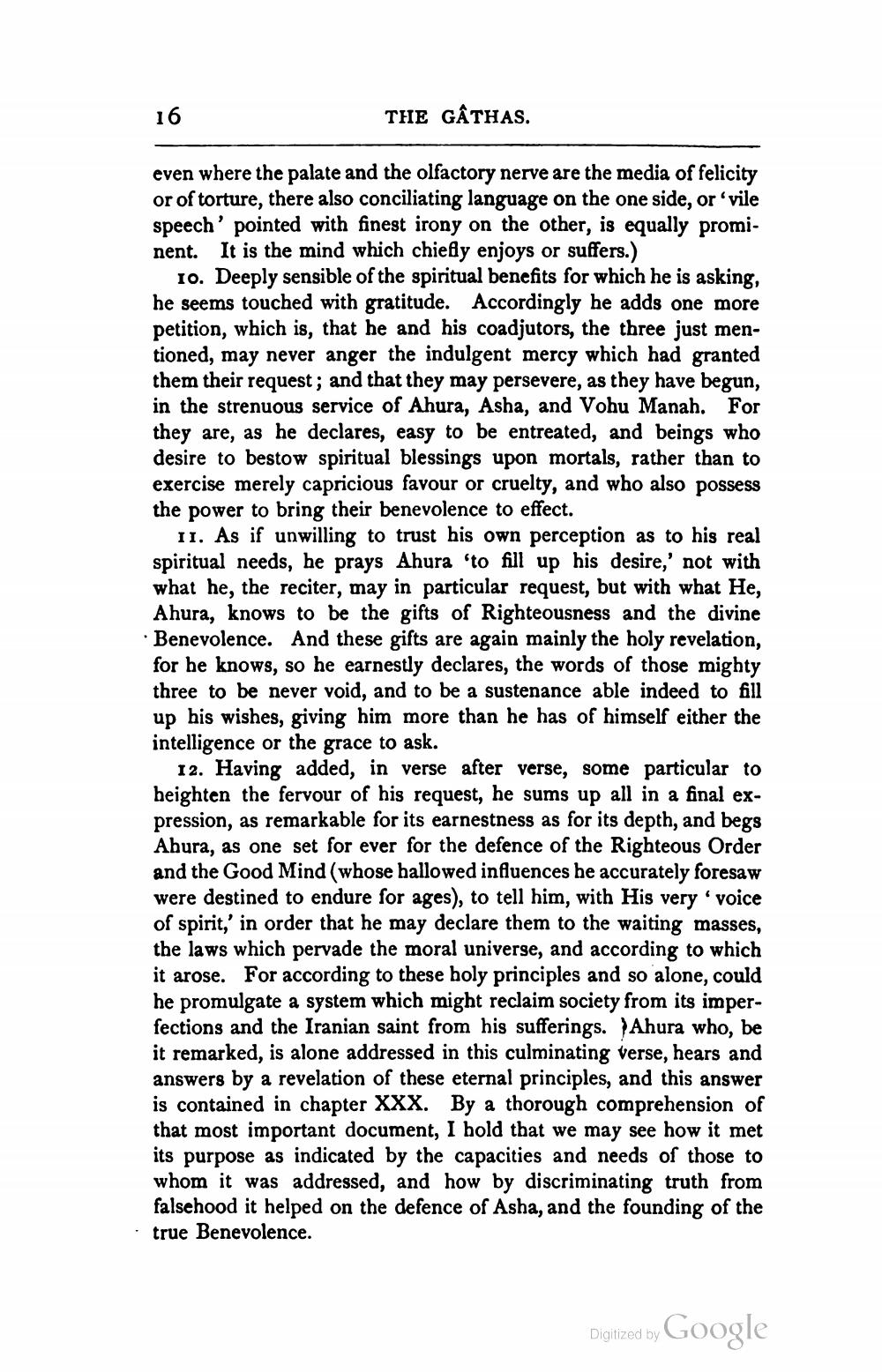________________
16
THE GÂTHAS.
even where the palate and the olfactory nerve are the media of felicity or of torture, there also conciliating language on the one side, or vile speech' pointed with finest irony on the other, is equally prominent. It is the mind which chiefly enjoys or suffers.)
10. Deeply sensible of the spiritual benefits for which he is asking, he seems touched with gratitude. Accordingly he adds one more petition, which is, that he and his coadjutors, the three just mentioned, may never anger the indulgent mercy which had granted them their request; and that they may persevere, as they have begun, in the strenuous service of Ahura, Asha, and Vohu Manah. For they are, as he declares, easy to be entreated, and beings who desire to bestow spiritual blessings upon mortals, rather than to exercise merely capricious favour or cruelty, and who also possess the power to bring their benevolence to effect.
11. As if unwilling to trust his own perception as to his real spiritual needs, he prays Ahura 'to fill up his desire,' not with what he, the reciter, may in particular request, but with what He,
Ahura, knows to be the gifts of Righteousness and the divine · Benevolence. And these gifts are again mainly the holy revelation, for he knows, so he earnestly declares, the words of those mighty three to be never void, and to be a sustenance able indeed to fill up his wishes, giving him more than he has of himself either the intelligence or the grace to ask.
12. Having added, in verse after verse, some particular to heighten the fervour of his request, he sums up all in a final expression, as remarkable for its earnestness as for its depth, and begs Ahura, as one set for ever for the defence of the Righteous Order and the Good Mind (whose hallowed influences he accurately foresaw were destined to endure for ages), to tell him, with His very 'voice of spirit, in order that he may declare them to the waiting masses, the laws which pervade the moral universe, and according to which it arose. For according to these holy principles and so alone, could he promulgate a system which might reclaim society from its imperfections and the Iranian saint from his sufferings. Ahura who, be it remarked, is alone addressed in this culminating verse, hears and answers by a revelation of these eternal principles, and this answer is contained in chapter XXX. By a thorough comprehension of that most important document, I hold that we may see how it met its purpose as indicated by the capacities and needs of those to whom it was addressed, and how by discriminating truth from
falsehood it helped on the defence of Asha, and the founding of the • true Benevolence.
Digitized by
Digitized by Google




